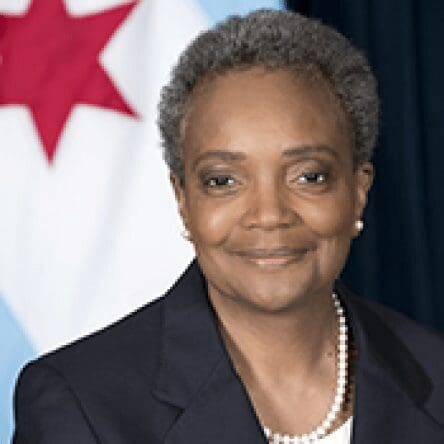Chicagoans can apply to the universal basic income program in April. It was one of four anti-poverty initiatives Mayor Lori Lightfoot announced Thursday.
By: Kelly Bauer
Original Post: https://blockclubchicago.org/2022/02/24/low-income-chicago-families-to-get-500-a-month-from-city-as-part-of-a-new-program/
Chicagoans can now sign up to get information about a basic income pilot program that will send $500 per month to low-income families.
The Chicago Resilient Communities pilot program will provide cash assistance to 5,000 families per month for a year, providing them economic stability after the uncertainty caused by the pandemic, Mayor Lori Lightfoot announced Thursday. Households selected for the program must have been impacted by COVID-19 and will be selected using a lottery system.
The program was one of four initiatives Lightfoot will roll out this spring to fight poverty in Chicago.
Together, the three programs are expected to benefit more than 30,000 Chicagoans, according to a Mayor’s Office news release.
Here’s a look at the initiatives:
Monthly Cash Assistance
People who wish to participate in the $31.5 million Chicago Resilient Communities pilot can sign up online to get information. They’ll be able to apply for the program in April, and the city will use a lottery system to determine who participates.
Residents who are chosen for the program will receive $500 per month for 12 months. There will be no strings attached to the money or limitations on how it can be spent.
To apply for the lottery, residents must live in the city, be 18 or older, have experienced economic hardship related to the pandemic and have a household income at or below 250 percent of the federal poverty level.
The city will work with nonprofits and an advisory group of experts to ensure the program is done in an “equitable and effective” way, according to the Mayor’s Office. The Inclusive Economy Lab at the University of Chicago will help city officials review the impact of the pilot.
Domestic Worker Relief Fund
The city will open applications for its $4.8 million Domestic Worker Relief Fund in April, as well. The fund will provide a one-time grant of $500 to eligible domestic workers.
The city did not immediately share more information about the fund or eligibility requirements.
Chicago Resiliency Fund 2.0
The city will also open applications in April for its $10.7 million Chicago Resiliency Fund 2.0. That fund will provide residents with a one-time grant of $500.
The fund is meant to help residents who were excluded from prior federal stimulus relief programs.
The city did not immediately share more information about the fund or eligibility requirements.
Fines, Fees
The city will also try to combat regressive fines and fees for low-income households through the Clear Path Relief pilot, which will open April 1.
The program will help low-income drivers eliminate debt by paying off the original amount they’d been fined on tickets given to them in the past three years, according to the city. Such drivers who get new tickets would have to pay 50 percent of the fine and would not incur fees or penalties on the tickets until after Dec. 31.
People with expired city stickers or expired license plate violations will also be able to “fix” the problem by buying the required sticker instead of paying a ticket, according to the city. People will have one opportunity to “fix” each violation per license plate, and the “fix” must be done within 30 days of the violation, according to the city.
















